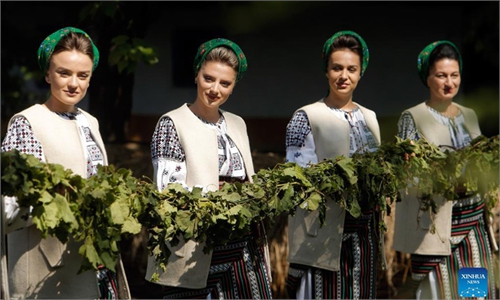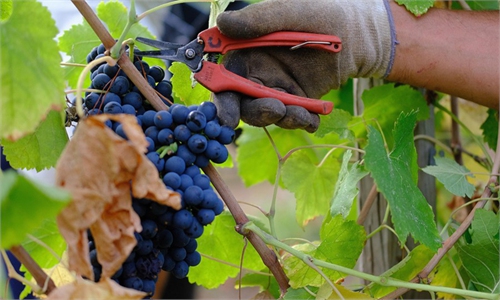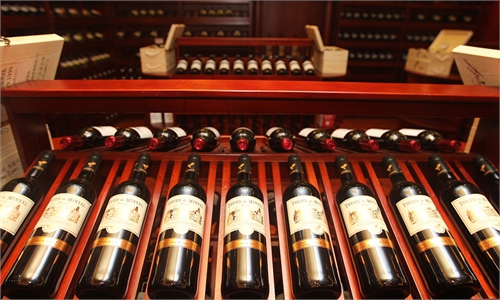Chinese wine in Ningxia: A marvel to the world
China's first International Wine Culture and Tourism Expo kicks off to bring worldwide wine lovers
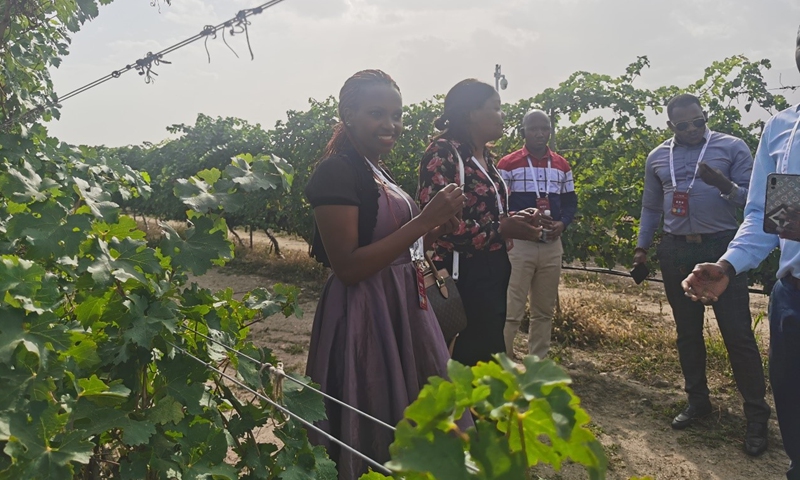
African representatives visit a vineyard and taste grapes on Sunday. Photo: Hu Yuwei/GT
China's first International Wine Culture and Tourism Expo kicked off on Sunday in Yinchuan, capital of Northwest China's Ningxia Hui Autonomous Region, with a national passion for world-class wine producing areas and a new bridge to worldwide wine lovers.
Located at the eastern foot of Helan Mountain in Ningxia, the wine producing area has been able to make world-class wines. By learning from the advanced experience of the grape industry in Western countries, the wine producing area has established innovative production standardization and marketing systems with Chinese characteristics and has gradually become a frontrunner across the world.
Ningxia's wine industry started in 1984, making it one of the earliest regions in China to grow grapes and make wine, local winemaking experts told the Global Times on Sunday.
In 2020, Ningxia's wine export grew by 46.4 percent with an increased international influence and competitiveness.
Ningxia has established close relations with 23 major wine producing areas in France, the United States, Australia and other countries, carrying out technical exchanges, introduction of cultivation and winemaking experts, joint education and other aspects of cooperation.
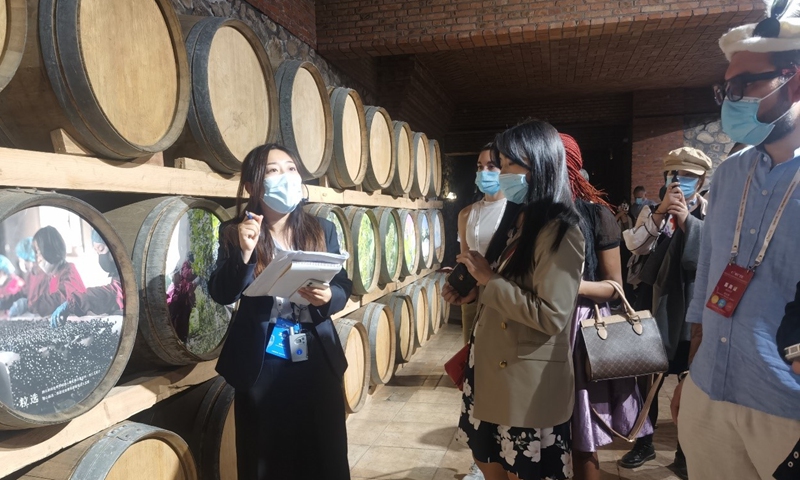
Representatives from developing countries visit the Yuanshi Vineyard on Sunday. Photo: Hu Yuwei/GT
Ningxia has burgeoned into a major winemaking region in China. It has approximately 211 wine chateaux with an annual output of 130 million bottles of wine, Xinhua News Agency reported.
Since the eastern foot of Helan Mountain in Ningxia was discovered as a "golden zone" for wine grape growth with "sufficient sunshine, little precipitation, large temperature difference and low humidity," wine has gradually become the vivid language of Ningxia to communicate to the world, Chen Run'er, Secretary of the Ningxia Autonomous Region Party Committee of the Communist Party of China, mentioned in his address at the opening ceremony on Sunday.
In July this year, the National Open Development Comprehensive Pilot Zone for Grape and Wine Industry, the first of its kind in China, was set up in Ningxia with the objective of turning the region into China's Bordeaux.
Wine is expected to become a new area of cooperation between China and Europe and between France and China, Jean-Pierre Raffarin, former prime minister of France said in an online address at the opening ceremony.
"There are still many misunderstandings between different parts of the world, but a common love of wine breaks down the barriers," Raffarin said, calling for dialogue and common civilization to be cherished and cooperation to prevail over competition.
"Through wine, we promote integrated development, promote openness and mutual benefit between China and the EU, and show the world and the industry that Chinese and Europeans support each other, overcome prejudice and share weal and woe," special representative of the Chinese government on European Affairs, Wu Hongbo, said at the ceremony.
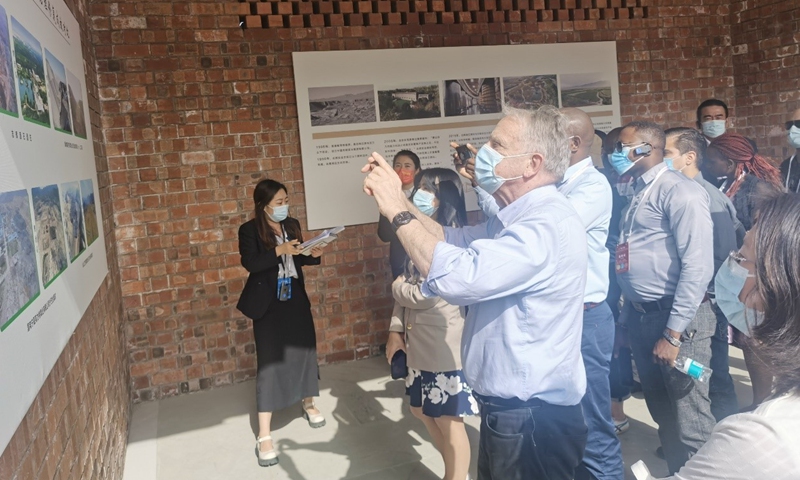
Representatives from developing countries learn about the progress of wine production in Ningxia on Sunday. Photo: Hu Yuwei/GT
According to the plan of Ningxia local government, the total area of vines cultivated at the base on the eastern foot of Helan Mountain will reach 1 million mu (0.06 million hectares) by 2025, with an annual output of more than 300 million bottles of wine and a comprehensive output value of about 100 billion yuan ($15.5 billion).
Qiao Jing, manager at the Yinchuan-based Yuanshi vineyard, told the Global Times that the wine industry has greatly boosted the local economy and employment. The average salary of the wine farm where she works has increased by 5 to10 percent every year.
Due to the decrease in the amount of imported wine during the COVID-19 epidemic, the boom of local wine also benefited the development of supporting industries in the surrounding villages, such as hospitality and themed tourism, said Qiao.
The expo events will feature an international wine contest, an exhibition of wine-manufacturing equipment, and forums on wine production, wine culture and wine tourism.
The expo is sponsored by the Ministry of Agriculture and Rural Affairs, the Ministry of Culture and Tourism, the Chinese People's Association for Friendship with Foreign Countries and the Ningxia regional government.

